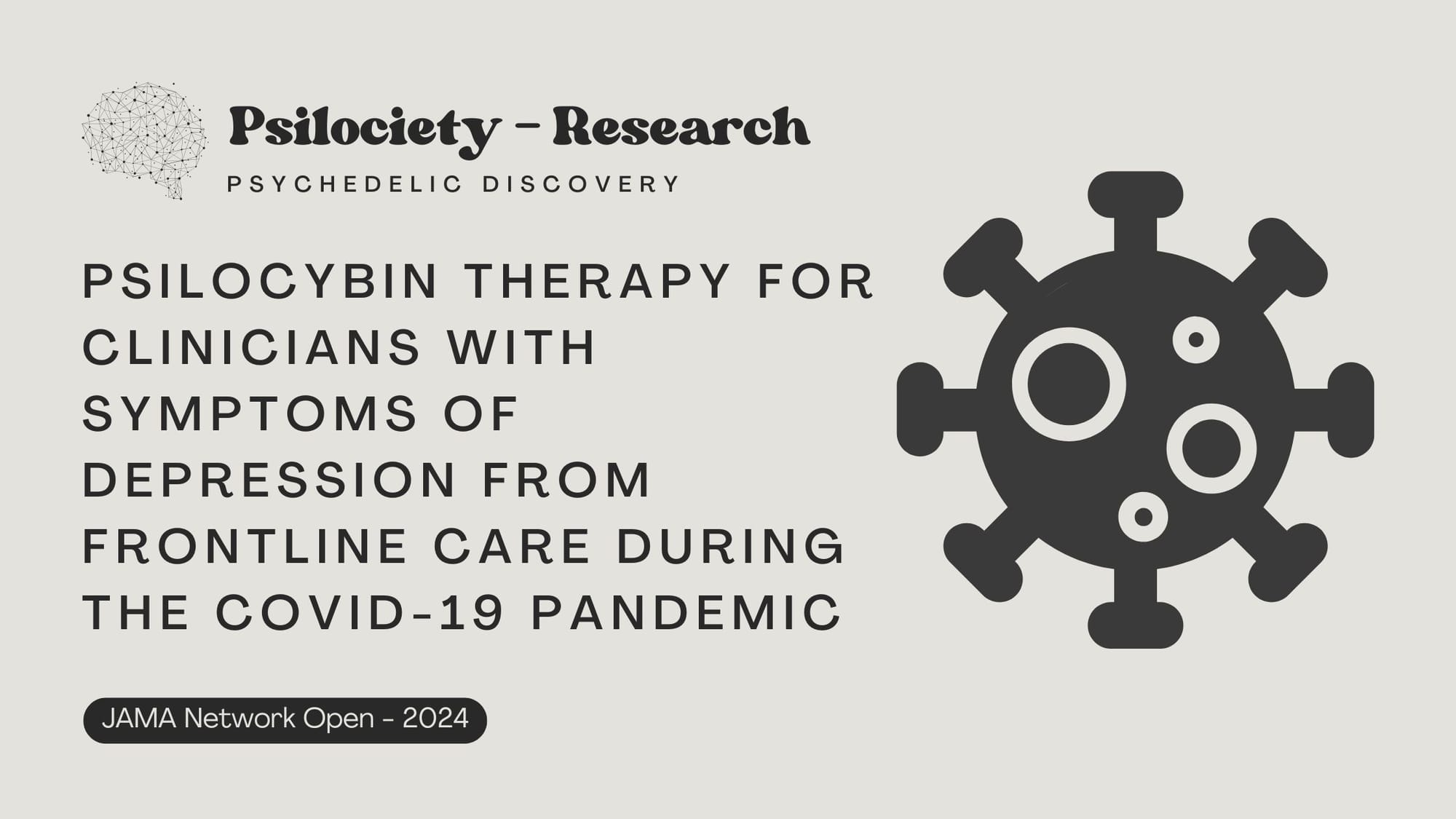Psilocybin Therapy for Clinicians With Symptoms of Depression From Frontline Care During the COVID-19 Pandemic
This study aimed to evaluate the efficacy of psilocybin therapy in reducing symptoms of depression, burnout, and PTSD in frontline clinicians affected by the COVID-19 pandemic.

Title & Introduction
- Paper Title: Psilocybin Therapy for Clinicians With Symptoms of Depression From Frontline Care During the COVID-19 Pandemic
- Published In: JAMA Network Open, 2024
- Authors: Anthony L. Back, MD; Timara K. Freeman-Young, PA-C; Ladybird Morgan, MSW; et al.
- Objective: This study aimed to evaluate the efficacy of psilocybin therapy in reducing symptoms of depression, burnout, and PTSD in frontline clinicians affected by the COVID-19 pandemic.
Summary & Takeaways
Key Takeaway: Psilocybin therapy demonstrates significant potential as a treatment for depression in clinicians affected by the pandemic, marking it as a groundbreaking option for mental health intervention.
Practical Application: Future research should focus on larger trials to confirm findings and explore psilocybin’s efficacy for other occupational groups.
Key Background Information
Context: Frontline healthcare workers during the COVID-19 pandemic experienced high rates of burnout, depression, and PTSD due to prolonged stress and exposure to suffering. Prior research has shown psilocybin’s potential to alleviate depression and anxiety in other populations.
Hypothesis: Psilocybin therapy would significantly improve depressive symptoms in frontline clinicians compared to an active placebo (niacin).
Methodology
- Study Design: Double-blind, randomized clinical trial.
- Participants: 30 clinicians (mean age 38 years, 50% female) without pre-pandemic mental health diagnoses but with moderate to severe depression during the pandemic.
- Intervention: Psilocybin (25 mg) or niacin (100 mg) administered during a guided therapy session. Participants underwent preparation, a medication session, and integration therapy.
- Controls: Niacin served as the active placebo.
- Duration: Data were collected from February 2022 through May 2024, with a primary endpoint at 28 days post-intervention and follow-ups at six months.
Key Findings
Depression: Psilocybin therapy resulted in a significant reduction in depressive symptoms, as measured by the Montgomery-Asberg Depression Rating Scale (MADRS):
- Psilocybin group: Mean MADRS score change of -21.33 (±7.84).
- Niacin group: Mean MADRS score change of -9.33 (±7.32).
- Difference: -12.00 (95% CI, -17.67 to -6.33; P < 0.001).
- Improvement sustained through six months (-24.00 average decrease in MADRS).
Burnout: Greater improvement was observed in the psilocybin group on the Stanford Professional Fulfillment Index, but the result was not statistically significant (P = 0.05).
PTSD: Symptoms improved more in the psilocybin group compared to niacin, but this outcome was not tested for significance.
Interpretation & Implications
- Conclusion: Psilocybin therapy significantly reduced depressive symptoms in frontline clinicians, with sustained effects up to six months.
- Implications: This study supports psilocybin therapy as a promising treatment for depression in high-stress occupational groups. Findings could pave the way for broader applications of psychedelic-assisted therapy in healthcare settings.
- Limitations: The small sample size and potential unblinding during sessions may limit the generalizability of the results.
Researchers & Publication
- Study Title: Psilocybin Therapy for Clinicians With Symptoms of Depression From Frontline Care During the COVID-19 Pandemic
- Authors: Anthony L. Back, MD; Timara K. Freeman-Young, PA-C; et al.
- Journal: JAMA Network Open, 2024
- URL: https://jama.jamanetwork.com/article.aspx?doi=10.1001/jamanetworkopen.2024.49026

